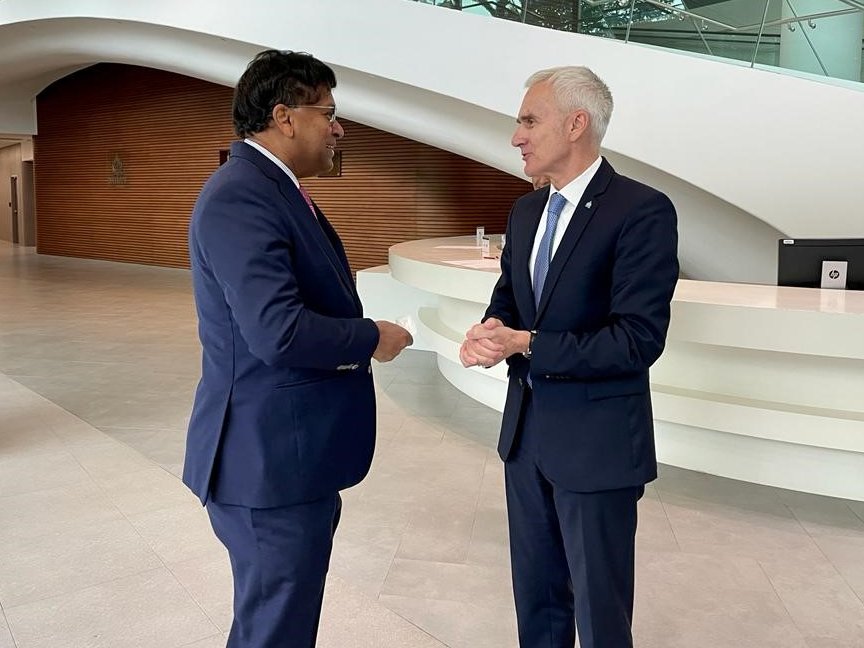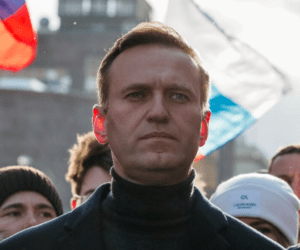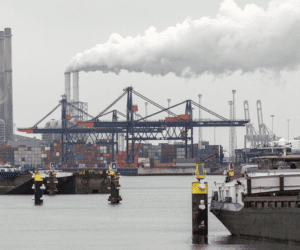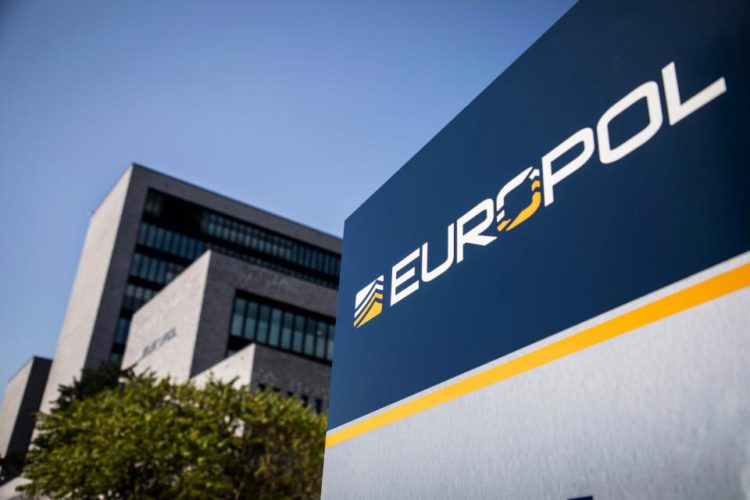By PAUL O’DONOGHUE, Senior Correspondent
INTERPOL , FATF and UNODC today (Monday) jointly warned about the danger of organised crime to the integrity of the financial system, callingon countries to step up AML measures to combat transnational crime.
In a move described as “unprecedented” by the leaders of all three bodies, they said the request for action was needed for countries to target the “huge” illicit profits generated by transnational organised crime.
“[These profits] facilitate conflicts, fund terrorism, and negatively impact vulnerable populations,” they warned.
The call by the three organisations, led by Jurgen Stock, Raja Kumar and Ghada Waly – was made at the 33rd UN Commission on Crime Prevention and Criminal Justice event taking place in Vienna today.
FATF President T. Raja Kumar pointedly referenced the dangers to international financial security – saying global financial integrity was “critical for financial stability, inclusion, and for peace and security”.
The three fincrime leaders said that by introducing tougher AML measures, countries can “more effectively combat and disrupt organised crime networks and enhance the effectiveness of crime prevention efforts”.
The three groups highlighted suggested enhancements to FATF’s international standards on AML and terrorism financing.
The FATF in particular mentioned its previous suggestions on enhancing measures around asset recovery.
They also called for: “Accelerated progress on policy reforms and capacity building ahead of the UN 2026 Crime Congress, to be hosted by the United Arab Emirates.”
The groups said of particular importance is that “greater support is still required for countries struggling to implement effective anti-money laundering and terrorist financing frameworks”.
Countries such as Croatia, Lithuania and Cyprus are among those which have received improved ratings after stepping up efforts to meet FATF recommendations on AML measures.
FATF President T. Raja Kumar said that global financial integrity is “critical for financial stability, inclusion, and for peace and security”.
“We must seize the initiative and collectively implement asset recovery to cut off the lifeblood of criminal enterprise – their money and their assets,” he said.
INTERPOL Secretary General Jürgen Stock said: “Just as criminals will trade any commodity to generate profits, every avenue must be followed to deprive them of these illicit gains.
“Choking off the illegal revenue streams is essential in promoting rule of law and protecting vulnerable communities. Action across all sectors and at the global level is needed now, and INTERPOL stands ready to provide whatever support necessary.”

UNODC Executive Director Ghada Waly said that money laundering and terrorism financing are “fuelling instability, violence, and exploitation worldwide”.
“Safeguarding financial integrity is vital to promoting peace and security,” she said.
“UNODC stands ready to work with governments, the private sector and our partners at FATF and INTERPOL to dismantle the illegal financial networks that sustain terrorism and transnational organised crime.”
Recognition was given towards the positive impact Member States increasingly working with the private sector and civil society to implement joint approaches to fighting financial crime. Operational work through public private partnerships and task forces is accelerating and increasing the effectiveness of global implementation efforts.
The FATF added that the three organisations will continue their calls for more AML action at a country level “through the 2026 Crime Congress” to be hosted by the United Arab Emirates.
While the three leaders highlighted recent enhancements to FATF’s international standards on anti-money laundering and terrorism financing, they also called for accelerated progress on policy reforms and capacity building ahead of the UN 2026 Crime Congress, to be hosted by the United Arab Emirates.
With financial integrity a key pillar in creating stability, of particular importance is the greater support still required for countries struggling to implement effective anti-money laundering and terrorist financing frameworks.
They also recognised the positive impact of Member States increasingly working with the private sector and civil society to implement joint approaches to fighting financial crime. Operational work through public private partnerships and task forces is accelerating and increasing the effectiveness of global implementation efforts, they said.
High-level participants at the event, “Taking the Profits out of Crime: Accelerating the Effective Implementation of Anti- Money Laundering and Countering the Financing of Terrorism Standards Globally”, discussed capacity building, the effective implementation of the risk-based approach, multi-sectoral partnerships, and technology as the key accelerators to boost effectiveness in the global fight against financial crime.
INTERPOL is the transnational organisation that facilitates worldwide police cooperation, while the United Nations Office on Drugs and Crime (UNDOC) focuses on a range of issues, including tackling the trafficking and abuse of illicit drugs, crime prevention and criminal justice.











